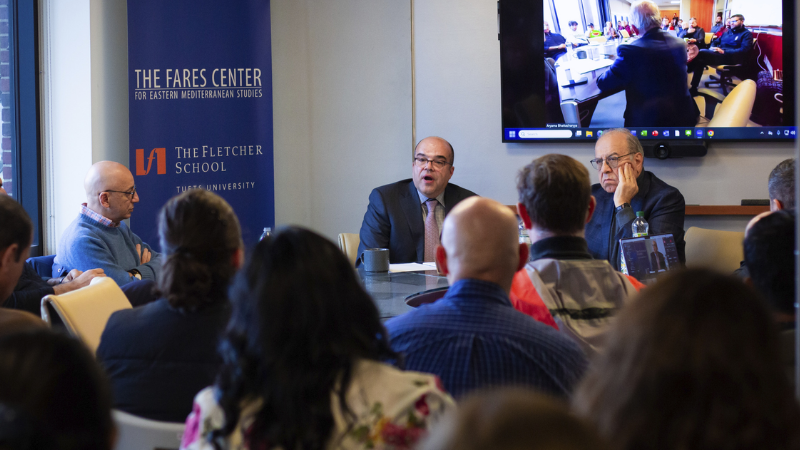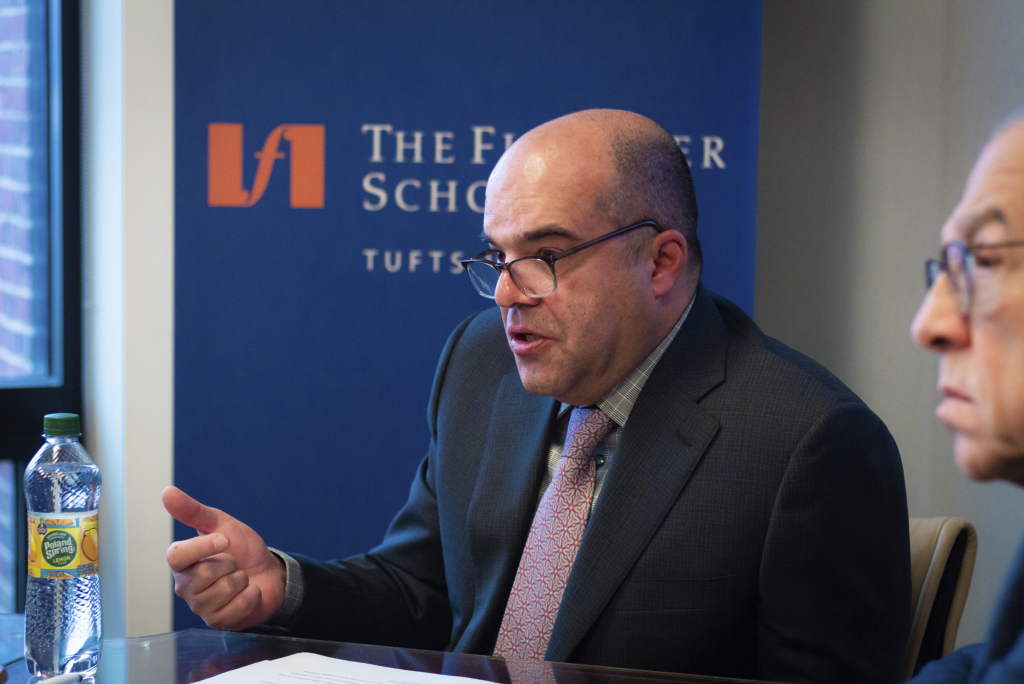
Regional Implications of Israel’s Ongoing War on Gaza
On November 21, 2024, the Fares Center hosted Mouin Rabbani, a leading expert on Middle Eastern affairs, for a discussion on the regional implications of Israel’s ongoing war on Gaza.
Mr. Rabbani began his talk by exploring the resilience of Arab-Israeli normalization, emphasizing that, despite the ongoing conflict in Gaza, Arab-Israeli normalization agreements have remained largely unaffected. He identified several factors accounting for the muted Arab state response in Gaza: (1) the weakened state of the Arab political system; (2) the absence of a competing superpower to counterbalance U.S. and Israeli dominance; (3) the deepening security cooperation between certain Arab states and Israel; and (4) reluctance to legitimize popular sentiment among Arab citizens, given the memory of mass protests and political instability in the aftermath of the Arab uprisings of the past decade.



Drawing parallels with previous geopolitical crises, Mr. Rabbani underscored that the present conflict could trigger long-term political instability across the Arab world. He pointed to the aftermath of the 1948 War that led to the Nakba, noting that Arab states endured a decade of internal upheaval, marked by coups, mass protests, and regime changes, culminating in the 1958 overthrow of Iraq’s Hashemite monarchy. Today, he said, the key distinction is that Arab states are not militarily involved in Gaza, raising the question of whether this inaction will shield them from domestic repercussions or, conversely, render them more vulnerable to internal dissent. He posited that Arab publics may, in the long term, hold their governments accountable not for losing a war, but for failing to intervene altogether.
Considering Israel’s strategic objectives in Gaza, Mr. Rabbani argued that Israel’s long-term approach bears strong resemblance to its 2002 military strategy in the West Bank during the Second Intifada. He described Operation Defensive Shield which saw Israeli forces dismantle Palestinian militant structures in the West Bank and weaken the Palestinian Authority’s political and security grip. Following this operation, Israel withdrew without a formal ceasefire, instead implementing a strategy of sustained incursions and targeted military actions at will. He suggested that Israel seeks to replicate this model in Gaza. He argued that this strategic framework explains Israel’s apparent disinterest in genuine ceasefire negotiations over the past year.
Addressing the potential fate of the Palestinian Authority (PA) and the possible annexation of the West Bank, Mr. Rabbani argued that Israel no longer perceives the PA as a useful entity and may seek to further marginalize or dismantle it. He claimed that, while the PA has long served as a security subcontractor for Israel in the West Bank, its continued existence is increasingly seen as an impediment to Israel’s unilateral annexation plans. Should formal annexation proceed, he predicted strong rhetorical condemnation from the Arab League but little substantive action.
Mr. Rabbani concluded by emphasizing that Israel views the present conflict as an opportunity to reshape the regional balance of power, akin to its 1967 military victory. However, he noted that regional uncertainty may prevent Israel from achieving its objectives.
